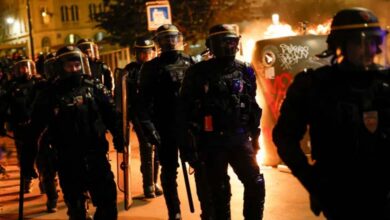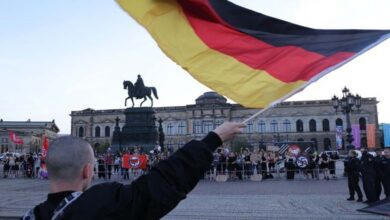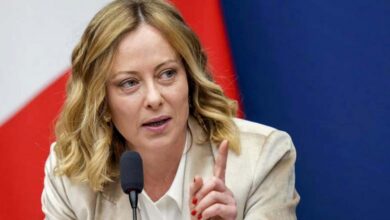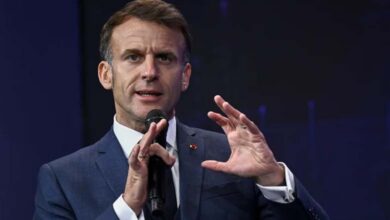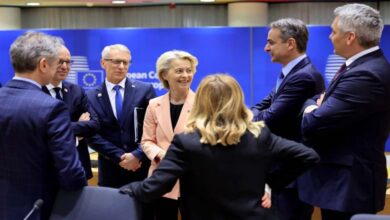Experts Warn: Parallel Islamist Systems Threaten France’s National Unity
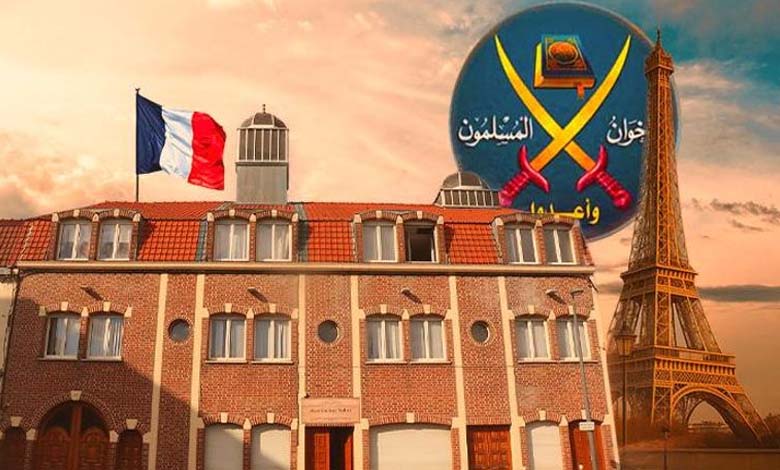
French experts warn that Islamist groups with ideological ties to the Muslim Brotherhood are increasingly posing a threat to France’s security and social cohesion.
-
The Group in Trouble… Who is the Islamist Ahmed Jaballah Expelled by France and Banned from Returning
-
Report on the Brotherhood threat sparks divisions within the French government and reveals Macron’s plan to counter the group
These groups have expanded beyond limited religious or cultural activities, developing what they describe as “parallel ecosystems” that strengthen local influence while asserting independence from the French Republic.
Their reach now extends to education, social services, and even local economic structures. They exploit democratic freedoms and religious liberties in France, while leveraging social grievances to build networks of influence, particularly in marginalized, immigrant-dense neighborhoods.
-
Muslims of France: A Brotherhood Front Undermining the Fifth Republic
-
The Muslim Brotherhood’s Threat to Education in France: The Frontlines Begin at Averroès
A Parallel State Structure
Professor Louis Chappelle, a specialist in religious and social movements, explains that these groups no longer operate as mere religious associations but are working toward establishing integrated socio-economic systems under a religious pretext—amounting to a gradual push for autonomy within the state.
He warns of an emerging “structure over the structure”, wherein educational institutions, health centers, and charities operate outside state control—and in some cases, entirely outside the bounds of French secular law.
-
France: Number of Muslim Brotherhood members has doubled since 2019, from 50,000 to 100,000
-
Associated Press: The French Elections of 2024, a Battle for the Future of France and Europe
This trend, he argues, creates isolated communities within French society, fostering a normalization of cultural and religious segregation, which threatens republican values, especially as younger generations grow up within these isolated spaces.
Religious Politics and Local Power
Dr. Jacob Moreau, a researcher on political Islam, notes that organizations like the Union of French Muslim Democrats (UDMF) have successfully merged religious outreach with public services and political activism.
-
The Muslim Brotherhood’s representation for education in France… What do you know about the National Federation for Private Islamic Education?
-
Europe leads uprising to stop violent groups – Details
He explains that such groups are focusing their strategies on municipal elections, aiming to mobilize Muslim communities in major cities like Lyon, Marseille, and Saint-Denis. They capitalize on themes of social justice and anti-discrimination to build strong political representation at the local level.
These networks are particularly active in underprivileged areas and target both youth and conservative families. Over time, their community engagement evolves into political demands that sometimes conflict with republican law, representing a serious challenge to national unity.
-
Austria issues a book about the Brotherhood, The group’s secrets in Europe and important recommendations
-
France mourns after the knife attack in the Notre-Dame basilica in Nice
Qur’anic Schools and Youth Indoctrination
A French intelligence report states that by early 2024, 815 Qur’anic schools were operating in France, hosting over 66,000 minors. Many are suspected of being linked to movements with Brotherhood affiliations, raising fears of ideological radicalization among the youth.
The report warns of a lack of effective oversight regarding the curriculum, which may contain teachings at odds with republican values—such as gender inequality, anti-secularism, and a strong emphasis on religious identity.
These schools often function informally within mosques or religious centers, beyond the scope of official educational regulation.
-
Can Macron stem the tide of Islamism in France?
-
Hidden Details Behind the Scenes: How the Muslim Brotherhood Creates Followers in Europe
Sports Activities as a Tool for Influence
The report also highlights a surge in youth-targeted activities, particularly through sports and summer camps.
Popular sports like football and basketball are reportedly being used to disseminate hardline religious messaging, with pre-game group prayers and designated prayer rooms at sports facilities.
Al-Karama Center: A Case Study
The Al-Karama Cultural Center in Colombes is cited as a clear example of this parallel system. While officially cultural and religious, it reportedly plays a direct political role, influencing election campaigns and lobbying local governments for special privileges for Muslim communities.
-
How the Far Right is Exploiting Artificial Intelligence in Germany’s Elections
-
The Muslim Brotherhood in Austria in 2024: From “Exposing Activities” to the Path to Banning
Experts describe this as a case of religion being used as a political pressure tool, where religious discourse frames political and social demands, forming a kind of religious-political lobby within French society.
The Rise of Digital Preachers
The report also warns about the growing influence of “digital preachers”—popular religious figures on platforms like YouTube, TikTok, and Instagram. These influencers appeal to younger audiences with relatable language but often promote separatist ideologies beneath a soft religious veneer.
Operating outside traditional religious institutions, they contribute to widening the gap between young Muslims and the rest of society, fostering cultural isolation and alienation.
-
Tariq Ramadan’s Appeals Rejected… Latest Developments in the Case of the Grandson of the Founder of the Muslim Brotherhood
-
German Analyst Reveals: Our Country Fights All Terror Centers and Organizations Affiliated with Iran and the Muslim Brotherhood
A Dilemma for the State
French authorities face mounting challenges in assessing the scope of this phenomenon. Some regions continue to ignore laws such as the ban on religious symbols in competitive sports, while certain municipalities indirectly support associations suspected of promoting anti-republican agendas.
The government also struggles to monitor foreign funding that may support these parallel networks. Many of the associations operate under charitable or cultural labels, offering them a legal shield that is difficult to penetrate.



